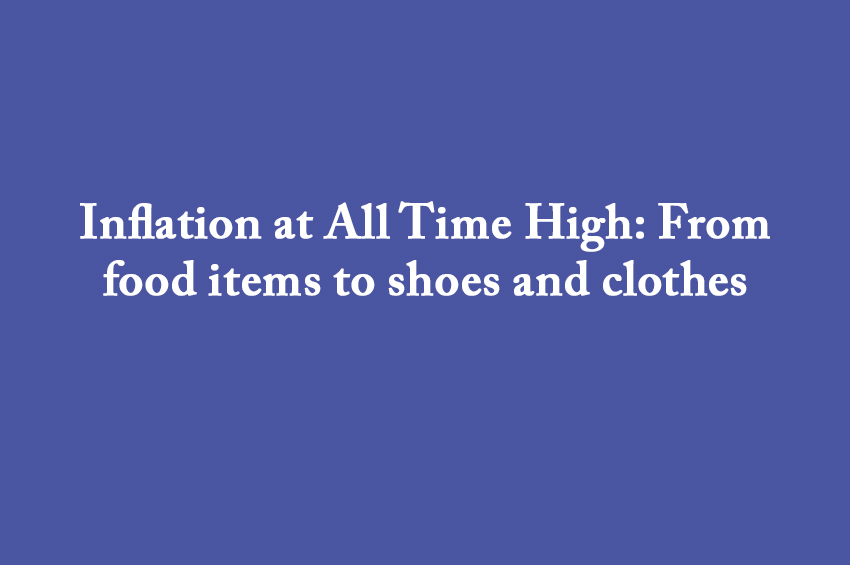Winning Business Desk
Mumbai. The common continued suffering on the inflation front in March as it reached a 17-month peak owing to the cost of food items to clothes and shoes. According to government data released on Tuesday, the Consumer Price Index (CPI) based retail inflation rose to 6.95% in March. Food inflation increased from 5.85% to 7.68%. This is the third consecutive month that the inflation rate has crossed the RBI's upper limit of 6%. Retail inflation was recorded at 6.07% in February 2022 and 6.01% in January. Retail inflation was 5.52% in March 2021 from a year ago. Recently, the Reserve Bank, after its first monetary policy meeting of this financial year, raised the inflation forecast to 6.3% in the first quarter, 5% in the second, 5.4% in the third and 5.1% in the fourth.
CPI considered as a scale to check inflation
Many economies around the world consider the WPI (Wholesale Price Index) as their basis for measuring inflation. This does not happen in India. In our country, along with WPI, CPI is also considered as a scale to check inflation. The Reserve Bank of India considers retail inflation as the main standard, not wholesale prices, for setting monetary and credit related policies. WPI and CPI interact with each other in the nature of the economy. In this way the WPI will increase, so the CPI will also increase.
How is the rate of retail inflation determined?
To measure retail inflation, there are many other things like crude oil, commodity prices, manufacturing cost, which play an important role in determining the rate of retail inflation. There are about 299 items, on the basis of whose prices the rate of retail inflation is decided.
Inflation at 40-year high in America
Inflation in the US has reached 8.5% due to the cost of food, gasoline, housing and other necessities. The Labor Department said on Tuesday that this is the biggest increase in inflation on a year-on-year basis in the last 40 years. Earlier, in December 1981, inflation had risen so much on a year-on-year basis. The rise in inflation is attributed to supply chain disruptions, strong consumer demand and the deteriorating condition of the global food and energy market due to the Russia-Ukraine war. Inflation increased by 1.2% in March when compared to February.


